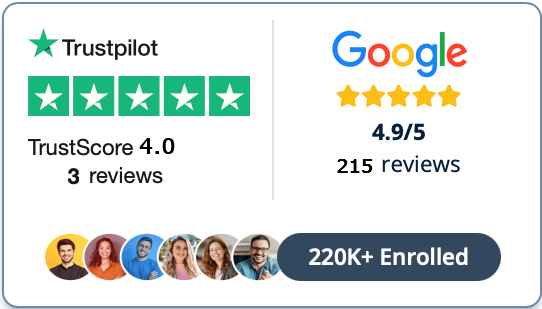- You are here:
- Home
- Introduction to Kubernetes on Edge with k3s

Introduction to Kubernetes on Edge with k3s
There is a growing interest in running software at the edge. This course takes a deep dive into the use cases and applications of Kubernetes at the edge using examples, labs, and a technical overview of the K3s project and the cloud native edge ecosystem.
Who Is It For :
This course is designed for those interested learning more about Kubernetes, as well as in deploying applications or embedded sensors in edge locations. While learners do not need a Kubernetes certification for this course, experience with a Linux operating system and shell scripting will be beneficial. Programming experience is also not strictly required. Learners will need to be able to run Docker on their computer.
What You’ll Learn :
In this course, you will learn the use cases for running compute in edge locations and about various supporting projects and foundations such as LF Edge and CNCF. The course covers how to deploy applications to the edge with open source tools such as K3s and k3sup, and how those tools can be applied to low-power hardware such as the Raspberry Pi. You will learn the challenges associated with edge compute, such as partial availability and the need for remote access. Through practical examples, students will gain experience of deploying applications to Kubernetes and get hands-on with object storage, MQTT and OpenFaaS. It also introduces the fleet management and GitOps models of deployment, and helps you understand messaging, and how to interface with sensors and real hardware.
What It Prepares You For :
This course will enable developers to learn about the growing impact the cloud native movement is having on modernizing edge deployments. They will also learn the challenges of deploying Kubernetes on the edge through a concrete example via the k3s project.
Testimonials
The lab provides many details for understanding the concepts of k8s.
What I liked most about the course was the material, the exercises, and the simulations.
I liked how much of the Kubernetes components it covered. I also really liked the hands-on labs, they were clear, and easy to follow, and all the setup scripts worked without any troubleshooting needed.
This course covered many topics in Kubernetes, and has improved my knowledge of Kubernetes.
- Online, Self Paced
- 14-16 Hours of Course Material
- Hands-on Labs & Assignments.
- 10 Weeks of Free Access to Online Course
- Digital Badge
- Discussion Forums
Details
- Chapter 1. The Case for Edge Compute
- Chapter 2. The Edge Compute Landscape
- Chapter 3. Scaling Down and System-on-Chip Devices
- Chapter 4. K3s: What Is and Why Is It needed?
- Chapter 5. Setting Up Your Own Lab Environment
- Chapter 6. Deploying Real Workloads with the Kubernetes API
- Chapter 7. Functions at the Edge
- Chapter 8. Command & Control and Remote Access
- Chapter 9. Deployment Strategies for Applications at the Edge
- Chapter 10. Challenges with the Edge
- Chapter 11. Continue Your Journey
- Final Exam (verified track only)
You should be familiar with the Linux Operating System and how to use common CLI commands to pass arguments, make use of configuration files, and to configure networking.A basic understanding or some prior experience with deploying applications to Kubernetes would be helpful to you.You will need to be able to run Docker on your computer.
For hands-on lab exercises, access to a Linux server or Linux desktop/laptop is required. Access to a public cloud provider, or VirtualBox on your machine is also needed. Lab exercises in this course have been tested in a GCP environment.
If using a cloud provider like GCP or AWS, you should be able to complete the lab exercises using the free tier or credits provided to you. However, you may incur charges if you exceed the credits initially allocated by the cloud provider.
- Agile and Scrum Training
- Banking and Finance Training
- Big Data Training
- Business Process Management
- Business Training
- Cloud Computing Courses
- Computer-Aided Design (CAD) Training
- Data Science Training
- Devops Training
- Digital and Innovation Training
- Human Resources
- Insurance Industry Training
- IT Security Training Courses
- Leadership Development
- Oil & Gas Training
- Project Management Training
- Quality Management Training
- Risk Management
- Sales and Marketing Training
- Soft Skills Training
- Software Development
- Supply Chain Management
- Telecom Industry Training
Request a Quote
Feel free to request a quote for corporate in-house programs or our upcoming open events. Write to us at info@meritglobaltraining.com

Request more details

Schedules
Build skills with experts anytime, anywhere. Keep up to date with the latest trends in your industry. Explore all of our courses and pick your suitable ones to enroll and start learning!
Introduction to Kubernetes on Edge with k3s
Hurry, Sale ends soon!
If you have any Queries about schedules Ask us here
More than 5 Participants ? Request for Corporate Training

Don't Miss Out On Amazing Benefits!
- Why Pay Higher For your Certification Courses when you can get them at much more competitive prices? Take the lowest-price challenge! Submit your Quote.
- Highest Rated For The Quality Training & Services
- 20000+ Certified Every year Through Meritglobal
- Avail Pay Later, EMI Options, Referral Bonus & More

We've successfully received your Message
We revert you shortly
Should your enquiry be urgent, please mail us at info@meritglobaltraining.com or call us +971 50 205 6399 / +91 80885 11977 / +1 863-250-1577

We've successfully received your Message
We revert you shortly
Should your enquiry be urgent, please mail us at info@meritglobaltraining.com or call us +971 50 205 6399 / +91 80885 11977 / +1 863-250-1577
